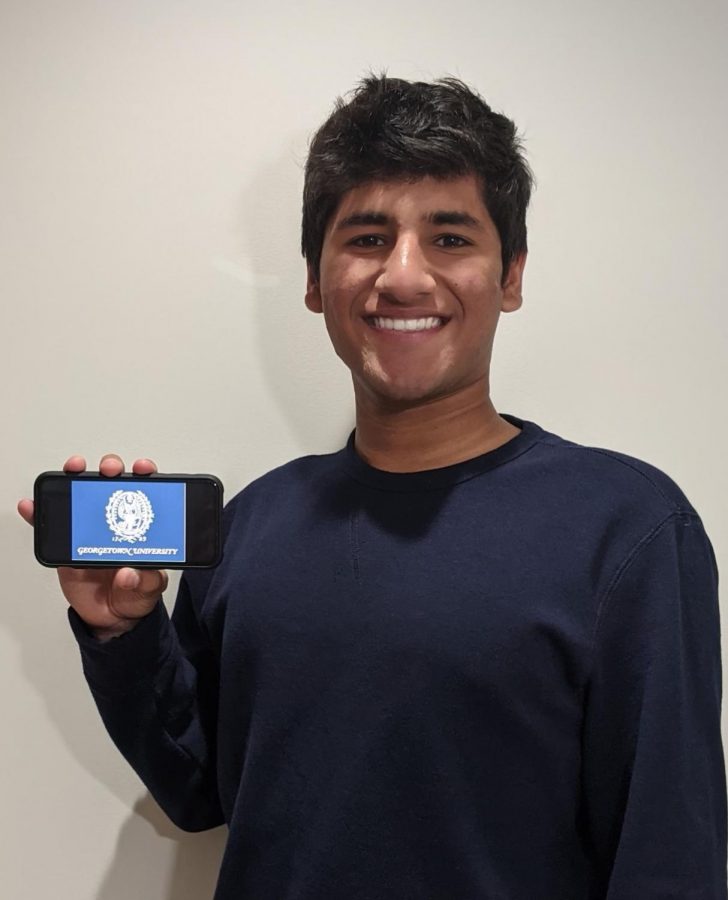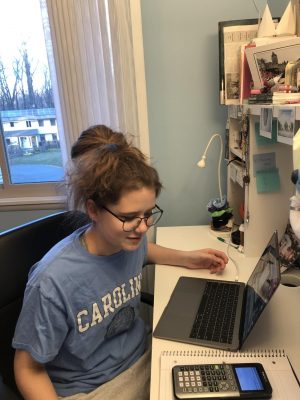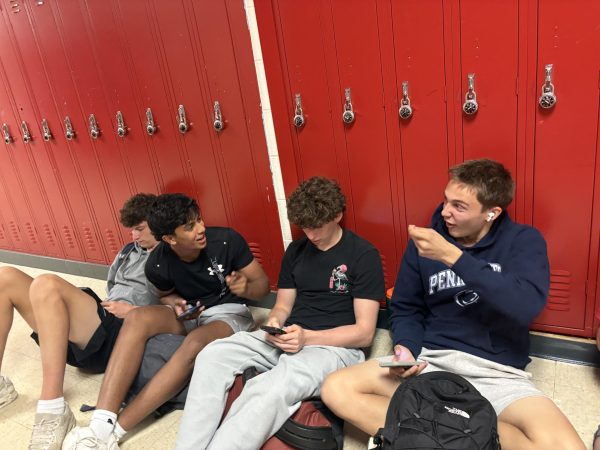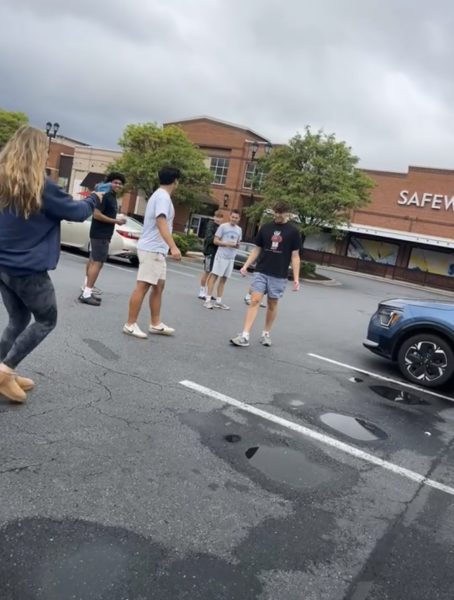Juniors gear up for college admissions process
Junior Aditya Khanna has begun to look into schools that interest him, including Georgetown University.
As the school year gradually approaches its end and seniors begin to commit to colleges, juniors are starting to prepare for their own journey through the college admissions process. The traditional ways that juniors usually prepare for this process, such as engaging in campus tours, have been prevented by the ongoing pandemic, thus making college admissions prep particularly challenging this year.
A starting point for most juniors in preparing for college admissions has been to consider majors that interest them, as this is a crucial factor to keep in mind when determining which schools to apply to. Not only does this narrow down students’ choices in schools based on major availability, it can also impact student interest in a university because certain colleges have schools or programs dedicated to specific areas of study that are well-known or prestigious. “I have researched the different programs at colleges I am interested in and attended virtual information sessions to gain more information. Since I want to go into computer science, I look into things like degree requirements, course sequences, competitiveness and research opportunities,” junior Parth Mishra said.
After having determined the areas of study they are interested in, many juniors have started organizing lists of institutions they plan to apply to. Important factors to consider include location, student body size, the alumni network and cost. “I have created a list of schools I like and mainly looked at schools which would be the best for computer science, the major I intend to go into. After that, I then looked at the life, campus size, if it’s near the beach or if it’s near the city, etc.,” junior Aditya Khanna said.
Much like most other activities this year, preparing for college admissions has shifted to a virtual format. Although some universities have begun to transition into reopening campus visits for prospective students, which allows people to determine for themselves if they are comfortable touring, many other colleges’ in-person visits are still cancelled. As a result, one way juniors are currently determining which schools will be the right fit for them is through virtual campus tours. “I made a list of colleges I was interested in and then toured all of them virtually. I was actually able to eliminate some of them after watching the tour, which was very helpful. For example, I eliminated schools if I didn’t like the size of it or something similar,” junior Elizabeth Ipe said.
Although seeing a school in person and directly experiencing the environment is an important aspect of a college tour, the virtual format of this year has enabled juniors to visit a wider range of universities, including those located farther away. “I definitely was able to visit more schools this year since the tours were online. I wouldn’t have been able to go as far as I was able to online. There are schools I visited that were more than four hours away and that would be unrealistic for me personally to go in person,” Ipe said.
Students receive support through the college admissions process from their counselors.
During individual meetings with juniors, counselors provide resources including tips on how to ask teachers for recommendation letters and familiarizing students with college application essay prompts. “My counselor and I went over the list of colleges we were supposed to make beforehand and then he answered any questions I had about the admissions process as a whole. I found it really helpful because it gave a new perspective to how I looked at the process and also filled in some of the blanks as to what I didn’t know,” Mishra said.
Your donation will support the student journalists of Thomas S. Wootton High School. Your contribution will allow us to purchase equipment and cover our annual website hosting costs.
Hannah Rah is a 2022 graduate.










